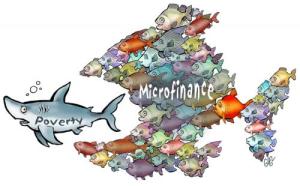Guinea’s president Alpha Condé, who came to this year’s World Economic Forum at Davos before participating at the African Union summit in Addis Ababa, discusses the crisis of capitalism and new business models for Africa. He sees giving women better access to micro-credits and therewith enhancing their economic empowerment as a major step towards more economic and social development in Africa.
image: www.genderdebate.com
Alpha Condé said to “Le Monde”:
“L’Afrique a des problèmes très concrets. La base de notre développement c’est l’agriculture : il faut d’abord donner à manger. L’énergie est aussi un problème, car sans énergie on ne peut pas développer un pays. L’éducation, la santé, le rôle des nouvelles technologies. En Afrique, nous devons essayer de mettre en commun notre politique pour l’énergie, les infrastructures, le commerce intérieur. […] Il faut donner une nouvelle image de l’Afrique. Une des tares de l’Afrique, qu’on nous reproche beaucoup, c’est la corruption. Il faut d’abord agir sur la gouvernance, appliquer la transparence, et que les ressources de l’Afrique profitent réellement aux populations africaines, particulièrement aux femmes et aux jeunes. […] L’économie africaine, pour l’essentiel, repose sur les femmes. L’homme peut émigrer, laisser les enfants, mais la femme est obligée de rester pour donner à manger aux enfants. Ensuite, les femmes sont plus honnêtes. Quand vous donnez du micro-crédit, le taux de remboursement chez les femmes est de 90 %. Le développement de certains secteurs, comme l’artisanat, repose sur les femmes. Notre objectif c’est de transformer le secteur informel productif en PME. Les femmes sont plus honnêtes, plus sensibles, plus travailleuses, mais elles n’ont pas assez accès au crédit. »
“Africa has very concrete problems. The basis of our development is agriculture: it is first necessary to have enough food resources. Energy is also a problem because without energy you cannot develop a country. Education, health and new technologies also play an important role. In Africa, we must try to harmonize our policy for energy, infrastructure and internal trade. [...] We must give a new image to Africa. One of the flaws of Africa we are accused of is corruption. We must first develop governance, apply transparency, and make sure that the resources of Africa actually benefit the African people, especially women and young people. [...]
The African economy essentially relies on women. Man may emigrate and leave children, but women are obliged stay to raise their children. In addition, women are more honest. For micro-credits, the reimbursement rate for women is 90%. The development of certain sectors, such as handicrafts, is primarily based on women. Our goal is to transform the productive informal sector into small and medium businesses. Women are more honest, more sensitive, harder working, but they do not have enough access to credit.”
Source: Le Monde, 31/01/2012
Empowering women by microfinance!?
See more and contribute to the Wikigender article on Women and African Economic Development
See more and contribute to the Wikigender article on Women and African Economic Development


